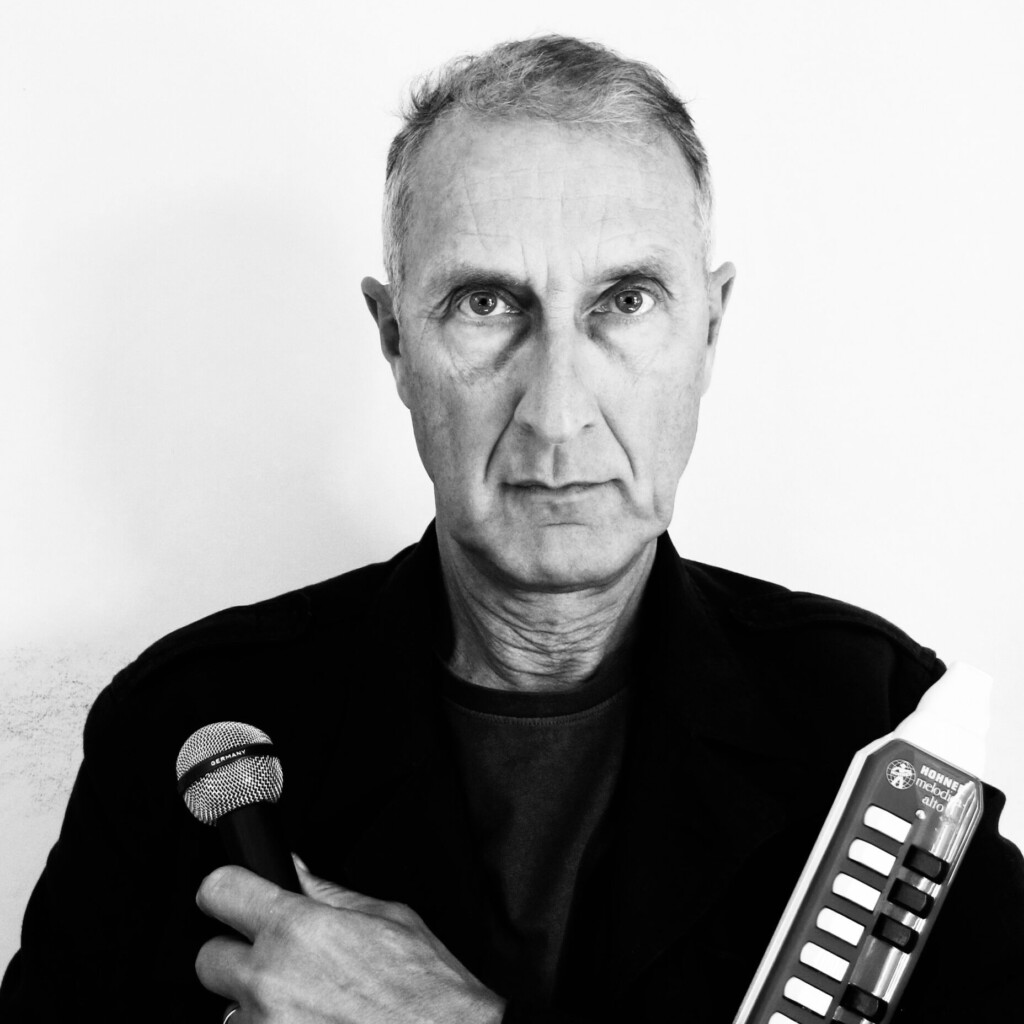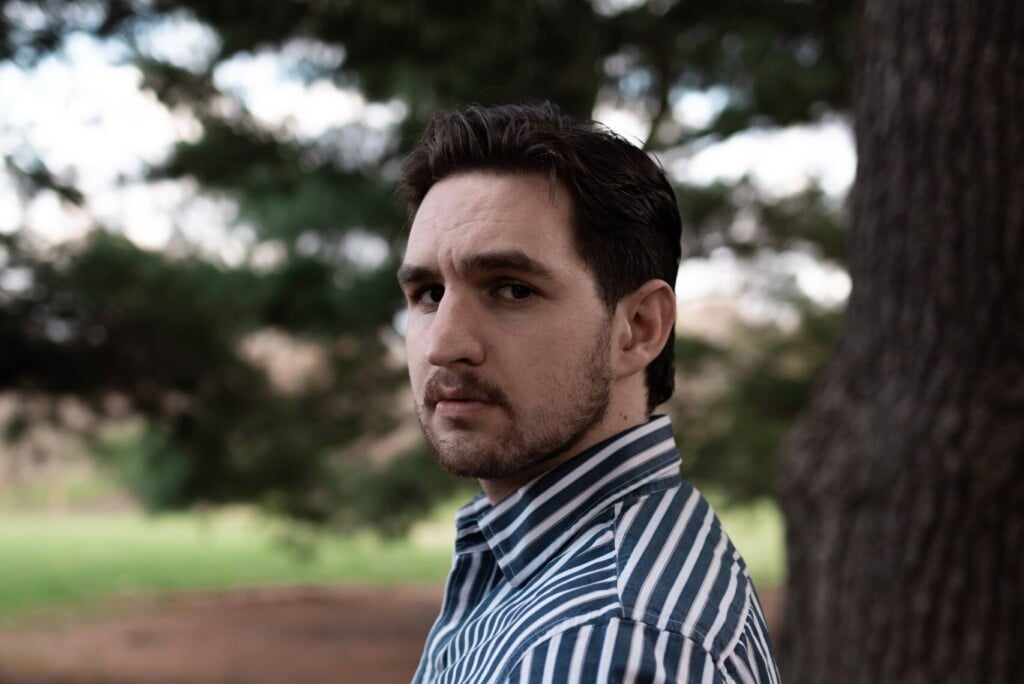Gang of Four’s Jon King talks his new book To Hell with Poverty! ahead of Knuckleheads show
Jon King, frontman for legendary post-punk act Gang of Four, is having one hell of a year. Not only is the band celebrating 45 years of their classic release, Entertainment!, but Gang of Four is in the midst of their final tour . King has also released his memoir, To Hell with Poverty!: A Class Act: Inside the Gang of Four, via Akashic Books, which “documents King’s story from a south London slum and working-class background to international success as core musician, lyricist, writer, and producer in the legendary post-punk/funk band.”
It’s a lot to discuss, but it was a real joy to hop on Zoom with Jon King before Gang of Four headed out on the tour, which stops at Knuckleheads on Tuesday, May 13.
 The Pitch: It’s such an interesting thing to have your memoir come out just a couple of days before you start a farewell tour. What brings these two things together at the same time?
The Pitch: It’s such an interesting thing to have your memoir come out just a couple of days before you start a farewell tour. What brings these two things together at the same time?
Jon King: It’s kind of a coincidence. I had always wanted to wrap things up this year. I just felt it was the right time to do that. It was the 45th anniversary of the release of Entertainment! in the United States. I really wanted to do something where we could honor our past and celebrate our our past, but do it in the right kind of way. The memoir, that was sort of strangely random, in that I had never, ever thought of writing a book, really about anything.
It was only as a result–I bumped into Steve Diggle of the Buzzcocks at Abbey Road two years ago. He and I were both invited to be interviewed for a documentary at Abbey Road Studios, which was just down the road from where I lived. I was in there and I bumped into Steve in the cafe at Abbey Road. That was where, of course, I recorded my second album, Solid Gold, so I knew Abbey Road well. He and I were very pleased to see each other.
I hadn’t seen Steve, actually, for about 30 years. We talked about the old news. We played with a Buzzcocks maybe 50 times. Our first tour of any tour was touring Europe with the Buzzcocks and then our first tour of the US was half supporting the Buzzcocks and half playing on our own on the nights that we didn’t play with them.
I asked Steve what he was doing other than being a Buzzcock, ’cause of course Pete [Shelley] died a couple of years ago, which was very sad, and he said he was doing his autobiography. I said, “How are you doing that?” ’cause he was so busy, and he was having it ghostwritten. He said, “You ought to do it,” and I said, “No, I don’t think anyone’d be interested.” I also wasn’t sure whether I’d really be able to remember much that happened.
But, he gave me the number of his agent, whom I didn’t call, who then phoned me and then talked me into it. It’s a long-winded thing, but in the end, as I thought about it, I thought that the things that I have experienced are, I think, quite mysterious to a lot of the people in our audience.
I mean, it’s hard to know, but I would guess that about two-thirds of the Gang of Four audience are under the age of 40 in the crowd, so the sorts of things that I grew up in are odd, certainly, to an American as well. I mean, you never had war on American soil, so there’s no one living in America, having an idea what it was like, growing up as I did–being born in the ’50s, where there were bomb sites all over London.
I played in a bomb site, which I thought was great fun. The house next door to my grandmother’s had a perfect circle where a German bomb had gone through the roof and through the first floor and down to the basement. That wasn’t unusual. The Monty Python-like poverty that I grew up in–which again, wasn’t that unusual. I mean, we had no hot water. We had no heating. We had no inside toilet, no bathroom at all. It seemed to me, as I thought about it, my own children would have no conception of what it’d be like to be in a house without any heating or hot water, you know?
The way you describe it in the book is so vibrant. I also appreciate the way in which the book is chronological, but it’s not, “And this happened and this happened and this happened and this happened.” You have these longer chapters and then you have these short pages where it’s like, “Here is a glimpse at a thing that stands out in my mind.” To Hell with Poverty! feels very much as though I’m reading you just telling me stories.
Yeah, I mean one of the things I think anyone who’s been in a long-term relationship with someone is that your partner or significant other will have heard all of your stories. The gag is with my wife, I’ll say, “Ah, do you remember number 68? That was a good story, wasn’t it?”
And yes, they were like vignettes. I think that when you come to want to share bits about your strange life, you tell the stories that are fun. It’s interesting. There were people that were important to me, but had no stories attached. You know good, good friends, but I can’t think of anything that happened that was funny or sad.
I think that people have gotten fed up with misery memoirs. I’ve read a lot of these things. In research, I read lots of books. I mean, I really enjoyed Keith Richard’s ghostwritten book. I really enjoyed Elton John’s ghostwritten book, but the worst of them, the worst book was, was Bernie Taupin’s self-written book because it was, as you’ve just said, “There was this thing, and then there was this thing, and then there was this thing, and then there was this thing,” and I was thinking we wouldn’t have any sense that this was one of the greatest lyricists of the 20th century. It was just a conveyor belt of things.
I sort of flip-flopped between writing things with a punchline and then there were also lots of sad stories. I mean, there was a lot of death involved, people like Malcolm from the Ruts dying and Buster Jones, my friend, dying and you wanna respect all that, but you don’t wanna be sort of gloomy. I wanted people get a flavor of what it was that drove me to be in a band at all.
One of the delightful side effects of reading your book was reminding me of how much I like Dr. Feelgood. While it’s not a connection I would’ve ever normally made, listening to like a bunch of Dr. Feelgood live recordings I have back-to-back with your early material, it’s like, “Oh, that low end. How did I never notice that?” I quite enjoyed your, your appreciation for all the art you like and your ability to communicate that to the reader.
Dr. Feelgood was very interesting because they were a very niche outfit and they came from a really sort of gray part of England, Canvey Island. The nearest thing I can think of it is Galveston without any of the glamour. Galveston in East Germany. It’s got old rusting hulls of abandoned ships and a power station there, and these strange concrete buildings that were put up after the Second World War to house people, and then it was Dr. Feelgood, who played simple music.
The music that I loved, apart from Dylan and, and the Stones, was of course blues music and Delta blues and Chicago blues music, and of course Robert Johnson, the man who invented it all. If you need to recharge your batteries, you listen to stuff when it’s just a guy playing because he had to not, not for any other reason. Just the guitar and maybe a box at his feet. You can hear them like Robert Johnson. He’s not quite in tune and he’s bashing the things, but you know it’s true.
And I knew it was true when I watched Wilco Johnson playing guitar, which Andy [Gill] of course copied all his life. His stage thing was an homage to Wilco. He never really diverged from that. It was attacking the strings, and I then attacking lyrics.
Your book captures the rapturous reception you got in the US upon your first visit and repeated visits. What is it like to come back and say goodbye, 45 years later?
I’m sure it will be really moving. I always loved America. From moment I could sort of read comics, I loved Americana. I hugely loved Marvel comics, and the back of the comics were things you could get like glasses, you could see through someone’s clothes, and they had and adverts for cartoons like Casper the Friendly Ghost. I mean, there were no cartoons on British TV, so I suppose the promise of the United States to me was really big.
And then of course, the music I liked to listen to. As soon as I heard Bob Dylan at the age of 11, I just thought, “What’s going on?” It was like being punched in the head. The, when I heard the first blues music and jazz music–again, all coming out of out of America. Like The Band. Although they were a Canadian band but they were retelling America stories.
I mean, Andy Gill and I knew every single Band song. We used to sit there drinking cheap wine and singing “Long Black Veil” or “Unfaithful Servant,” so it will be moving. Every place we play will be a last show. In fact, that’d be the first time we’ve ever played in Kansas City. Our first show will be our last show. I mean, it’s quite an unusual thing to do and everyone who comes along, I hope, will be thrilled by it all and then shed a tear.
Gang of Four plays Knuckleheads on Tuesday, May 13, with the Roman Numerals. Details on that show are here, and you can order Jon King’s To Hell with Poverty!: A Class Act: Inside the Gang of Four via Akashic Books.





